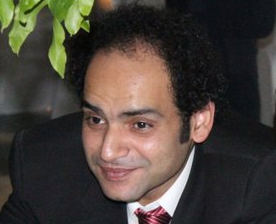
On 11 February 2011, the day Omar Suleiman announced Mubarak’s decision to step down and designate his presidential responsibilities to the Supreme Council of Armed Forces, the day when millions of Egyptians took to the streets in celebration of the revolution’s victory, the day we believed the birth of a new Egypt was on the horizon; that day, we all lost the revolution.
11 February was the day the revolution was declared a political uprising in which a minor change in leadership would fulfil the demands of the millions who occupied the streets. The euphoria of a Mubarak-less Egypt superseded any logic. I confess to being one of those who were simply too happy to think.
What we lost essentially was a social revolution that was in the making. The few days that preceded 11 February carried all the signs for a social revolution. Workers were rising, classes were mobilising, the movement in the square was gaining extraordinary momentum and organising itself more and more; an anti-state camp was being formed based on a social alliance. This is the moment the military stepped in to save whatever was left of the Mubarak state and its corrupt institutions.
The rationale was simple for the military, why risk destroying a whole matrix if you can afford a simple change from above. At the same time, the rationale was attractive to those forces on the street who desired leadership and knew they were the most organised to negotiate with the military for their share of it.
Political repercussions are always easier to assimilate than social ones. The alliance between those who wanted to preserve the matrix and those who wanted to jump on the top of it turned the events of January 2011 into a political revolution where elections are the ultimate tool of reform.
As soon as this turn of events took place, the demands raised by millions during the 18 days became dependent on the post-election political landscape. The story after that is old news, with lessons to be learned and mistakes to be avoided. But the one sure thing is the political forces that ran for elections did not fight the necessary battles for those elections to be meaningful or reflective.
The election scene last year was nothing but a vulgar display of power by the Muslim Brotherhood, a manipulative state of religious polarisation by the Salafis and premature attempts by all other forces to merely exist. With all due respect to the Egyptian bloc for their ability to at least form an alliance, the level of work on the ground was still minimal.
This is the lesson that needs to be learned more than any other; elections in Egypt are a game that depends primarily on non-political existence. And despite how grim things appear to be right now, there are efforts made by both Al-Dostour and Al-Tayyar Al-Shaabi at the moment that deserve lots of respect and credit.
If we ever reach the stage where parliamentary elections are around the corner (provided we ever get done with how absurd the battle over this strange constitution will be), I expect both forces to pose a real threat to the Muslim Brotherhood and the Salafis.
Both forces are better organised than all the parties that ran for the previous election, both have more coherent and more experienced leadership and both seem so far to have learned the lesson of the previous election: you have to know who you are running against before you know who you are running with.
It is true that running against the Muslim Brotherhood while it occupies all the important positions in the state is more difficult than running against them when they were a mere political force. However, the task is still very much doable. I do not think that the Muslim Brotherhood will lose their majority in parliament in the coming elections, but other political forces are indeed at a position that threatens the Brotherhood’s outright dominance.
The struggle now is over Egyptian minds. As long as new political forces continue to occupy a place within social fields, as long as their work continues to be more practical and less ideological, as long as their tactics are devised not only to propagate their own cause but to also counter their opponents, the war for Egyptian minds could be gradually won.



